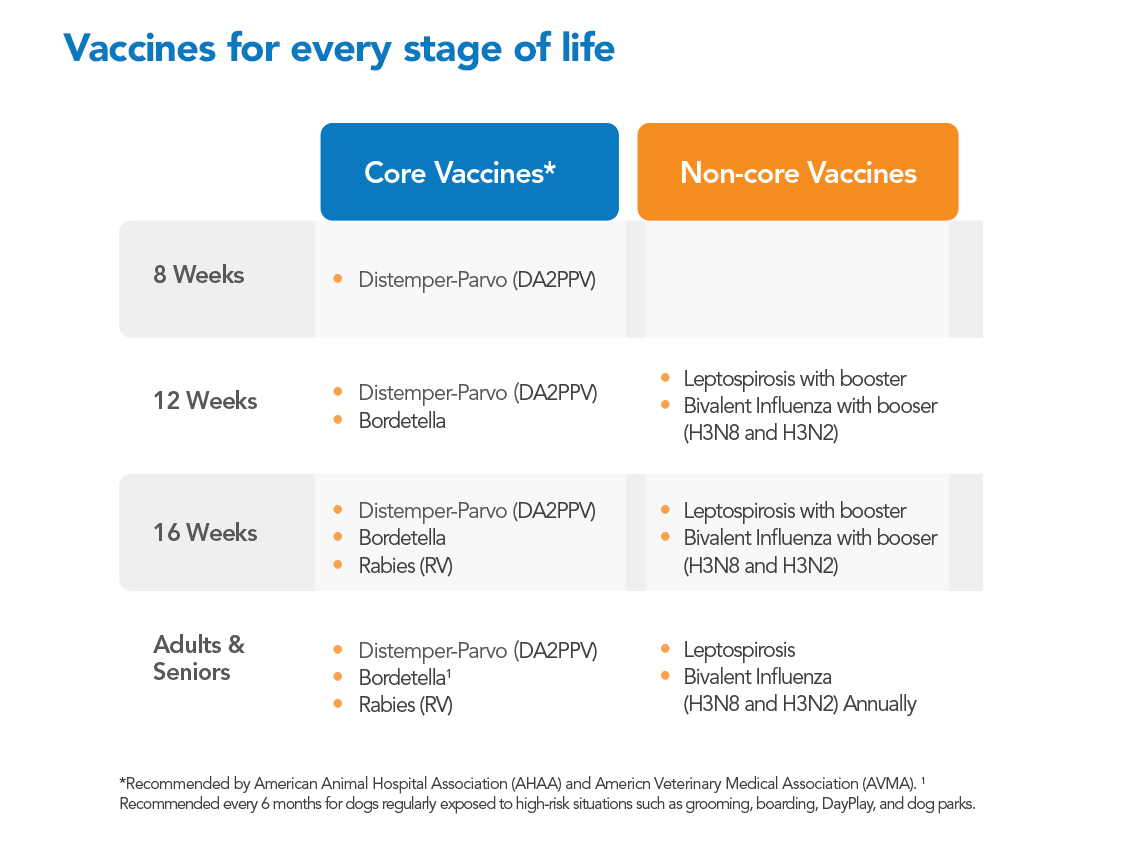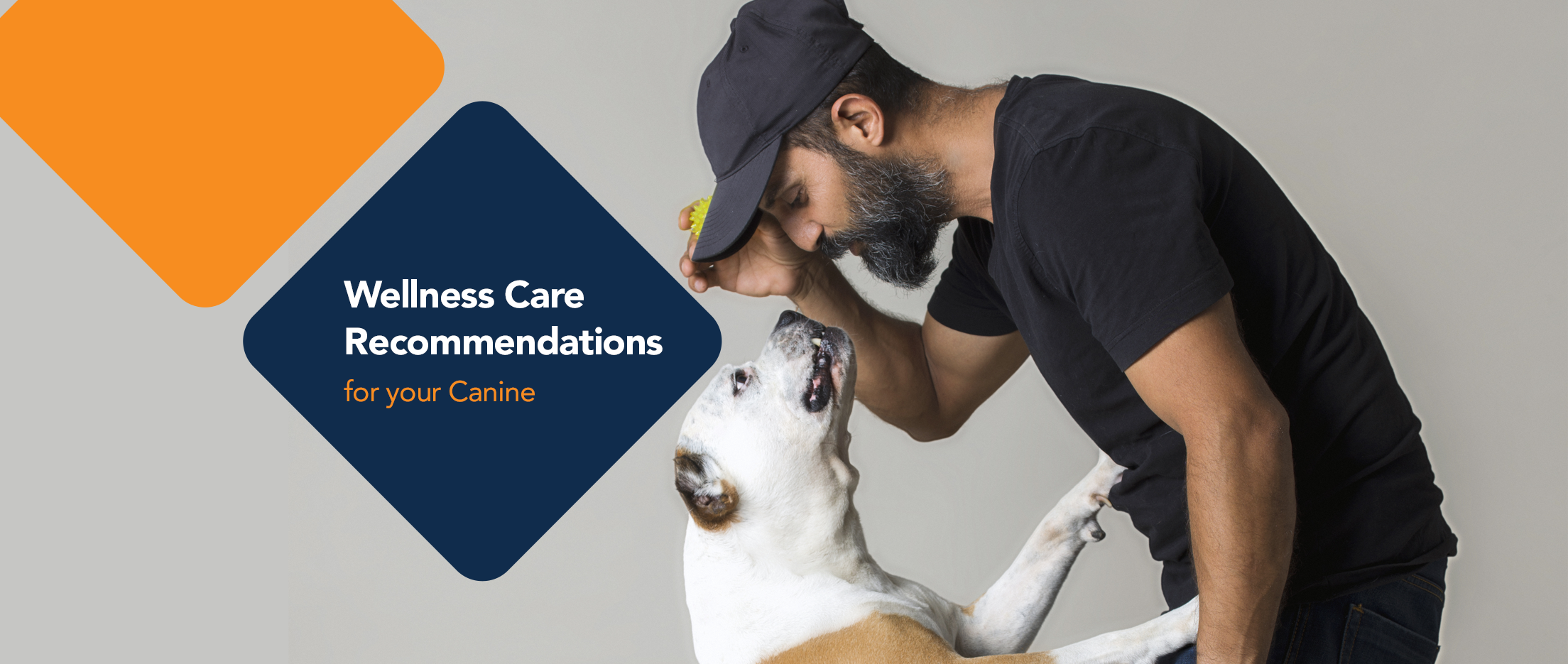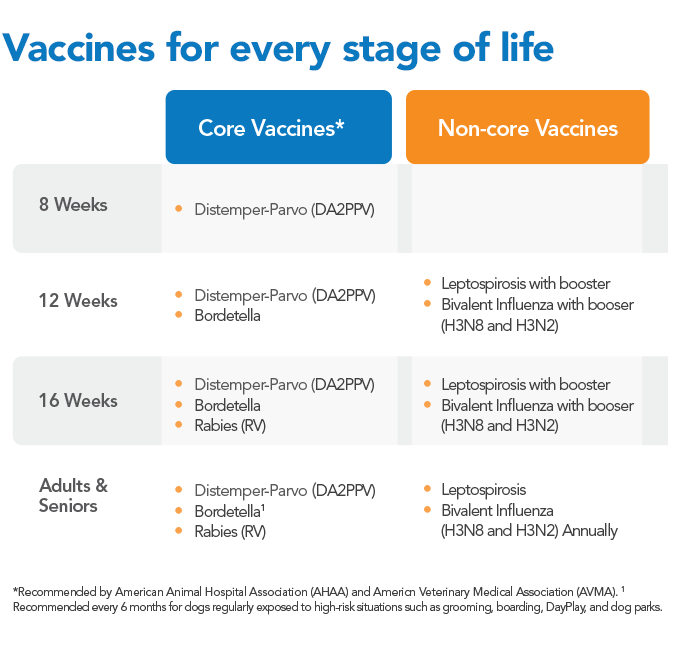Regular physical exams by a veterinarian are an essential part of a proactive and preventive
approach for a healthy and happy dog. Wellness checkups play a key role in the early detection
of serious illnesses, especially since our pets can.t tell us when there is something wrong.
Dogs age more rapidly than people and therefore changes in health status may occur more quickly.
For puppies, we recommend having exams performed at 8, 12 and 16 weeks of age. For adult dogs
every 6 months, especially for pets older than 5 years of age.

SPAY / NEUTER
We generally recommend that puppies be spayed or neutered at approximately 6 months of age,
but some variations may apply to certain breeds and in certain circumstances. Consult with
your veterinarian for specific recommendations.
|
|
MICROCHIP
We recommend that every pet be microchipped regardless of age. It can mean the difference
in whether a lost pet is returned home safely. Microchipping is a simple procedure that
can be done in the exam room or while under anesthesia for other procedures. Some cities
require microchipping for pet registration.
|
DENTAL CARE
Dental cleanings are recommended annually starting as early as 1 year of age for some
small-breed dogs and 2 years of age for larger-breed dogs. Brushing your pet's
teeth regularly promotes good oral health.
|
|
FOOD / NUTRITION
Your dog's health depends on nutrition. The foods you feed your dog will have a
life-long impact on overall wellbeing. We recommend feeding your dog a healthy,
all-natural, meat-based food that is free of dyes, fillers and low-quality
ingredients. Choosing healthy food can be difficult, which is why we only carry
healthy foods that our veterinarians feed their own pets.
|
Senior Care
Senior dogs face many of the same challenges and lifestyle changes as senior humans.
Much like people, senior dogs need more care and attention than juvenile and adult
dogs - there's no way around it. At a minimum, your senior dog should be examined by
your veterinarian at least twice per year. Regular checkups by your vet are the best
method for early disease detection and preventative care, which are key to ensuring
your dog lives a long and healthy life.
SENIOR WELLNESS SCREENING
These tests are recommended for dogs starting at an average age of 7 depending on the
size and lifestyle of your dog.
- Complete Blood Count (CBC), Serum Chemistry, and Urinalysis
These tests check for signs of diabetes, liver and kidney disease, thyroid problems,
anemia and platelet disorders, and electrolyte imbalances. Checking these early can
help prevent or treat any of these issues from becoming a big problem and help extend
the life of your dog.
- Digital Radiographs (X-ray)
X-rays show internal structures, so we can quickly diagnose many conditions that they
can't see by just looking at your pet. We can also see pictures of tissues, organs,
bones, and foreign objects like swallowed items or bladder stones.
- FAST Scan Ultrasound
Ultrasounds helps us check for fluid, masses and basic organ architecture, an
ultrasound can be invaluable.



